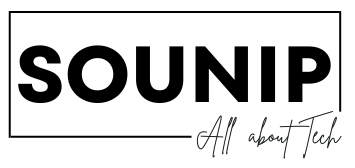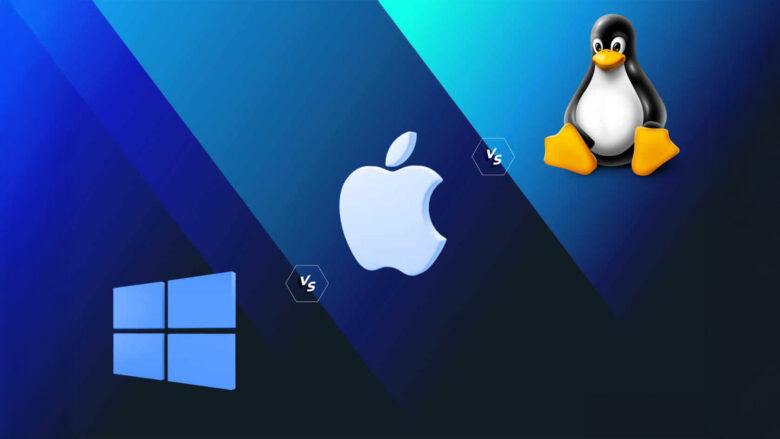Choosing the right operating system (OS) is one of the most important decisions you can make as a user. Whether you’re looking for a seamless experience, top-notch security, or maximum compatibility, the three major operating systems—Windows, macOS, and Linux—offer unique advantages and trade-offs. But which one should you choose in 2025?
In this guide, we’ll compare these three giants, exploring their strengths, weaknesses, and what each brings to the table in 2025. We’ll also provide practical insights to help you make an informed decision that suits your needs. Let’s dive in!
Understanding the Landscape: Windows, macOS, and Linux
The world of operating systems has evolved considerably over the years, with Windows, macOS, and Linux dominating the market. But which OS reigns supreme in 2025? Let’s start by understanding the basic differences between these three contenders.
Windows: The All-Rounder OS
Windows has long been the most popular OS for personal computers, and it continues to hold that title in 2025. Known for its user-friendly interface and compatibility with a wide range of software, it remains a go-to for both casual users and professionals. The latest version, Windows 11, has introduced a more streamlined and modern interface, along with enhanced support for touchscreens, gaming, and virtual desktops.
- Compatibility: Windows supports a vast range of hardware and software, making it the go-to OS for most users.
- Gaming: It’s the best OS for gaming, with support for the latest titles and features like DirectX 12.
- Enterprise and Productivity: Widely used in business environments, with full support for office software like Microsoft Office and extensive third-party tools.
macOS: The Premium Choice
macOS is Apple’s operating system, known for its sleek design, intuitive interface, and robust security. It’s the OS of choice for many creatives, such as graphic designers, video editors, and musicians. In 2025, macOS continues to offer a premium, stable, and secure experience with features like the M1 and M2 chips, which provide incredible performance and battery efficiency.
- Security: macOS is known for its strong security, with built-in encryption, strict app controls, and regular updates.
- Design and User Experience: It offers a refined user interface that’s perfect for professionals and creative tasks.
- Exclusive Software: Apple’s suite of productivity and creative apps, like Final Cut Pro and Logic Pro, is unmatched in certain industries.
Linux: The Power User’s OS
Linux is a free and open-source OS that’s popular among developers, system administrators, and power users. While it doesn’t offer the same level of mainstream software support as Windows or macOS, it provides unrivaled flexibility and control over your system. In 2025, Linux remains a favorite for those who need a high level of customization, security, and efficiency.
- Customization: Linux allows you to modify almost every aspect of your OS, making it ideal for advanced users.
- Security: With its open-source nature, Linux is considered one of the most secure operating systems available.
- Cost: It’s free to use, and there are no licensing fees, making it a cost-effective choice for many users.
Key Differences in 2025: Windows vs macOS vs Linux
Now that we’ve explored the basics, let’s dive into the specific differences between Windows, macOS, and Linux in 2025. We’ll examine factors such as performance, software support, security, and overall user experience.
Performance: Which OS Runs Best?
Performance is a key consideration when choosing an OS. Windows, macOS, and Linux each have strengths in different areas.
- Windows: Windows 11 has made significant strides in performance, especially with its support for newer hardware and better gaming optimizations. However, it can still experience occasional slowdowns on older hardware.
- macOS: The introduction of Apple’s M1 and M2 chips has given macOS a significant performance boost. These chips are optimized for efficiency, resulting in smooth performance even on lower-end hardware.
- Linux: Linux is known for its lightweight performance. It runs efficiently on older hardware and doesn’t require as much processing power as Windows or macOS, making it ideal for systems with limited resources.
Software and Compatibility
When it comes to software, compatibility is essential. Let’s see how each OS stacks up in this area.
- Windows: Windows offers the broadest software compatibility, supporting everything from casual games to complex enterprise software. If you rely on specific programs, Windows is likely your best bet.
- macOS: macOS is limited in terms of software availability, but it supports all of Apple’s exclusive applications. For creative professionals, macOS is unbeatable, but for general-purpose software, Windows may have an edge.
- Linux: Linux offers many open-source alternatives to popular software, but it doesn’t support most mainstream applications like Adobe Creative Suite or Microsoft Office. However, there are workarounds like Wine and virtual machines to run Windows applications.
Windows vs macOS vs Linux: Which One Should You Choose in 2025?
There is no one-size-fits-all answer when it comes to choosing an operating system. Each OS offers unique advantages depending on your specific needs. Here’s a quick breakdown:
| Feature | Windows | macOS | Linux |
|---|---|---|---|
| Performance | Excellent for gaming, good for general use | Best for creative professionals, great performance on newer hardware | Lightweight, fast, runs well on older hardware |
| Software Compatibility | Broadest compatibility, including games | Limited to Apple and creative software | Open-source alternatives, but limited mainstream support |
| Security | Good, but vulnerable to viruses | Very secure with regular updates | Very secure, open-source code |
| Cost | Paid with licensing fees | Paid, premium pricing | Free, no licensing fees |
| Customizability | Somewhat customizable | Limited customizability | Highly customizable |
Which OS Should You Choose?
Choosing the best OS for your needs in 2025 depends on your priorities. If you’re a gamer or need broad software compatibility, Windows is likely the best option. For creatives and professionals who value security and design, macOS remains the top choice. If you’re a developer or power user who values flexibility, open-source software, and minimal resource usage, then Linux is the way to go.
Remember, there’s no wrong choice—just the right one for you. We hope this guide helps you make an informed decision and find the perfect OS for your needs in 2025!
Want more comparisons and tech insights? Check out our other articles on the latest in technology, including how to optimize your device for productivity!
Read more about choosing the best software for your computer here.



